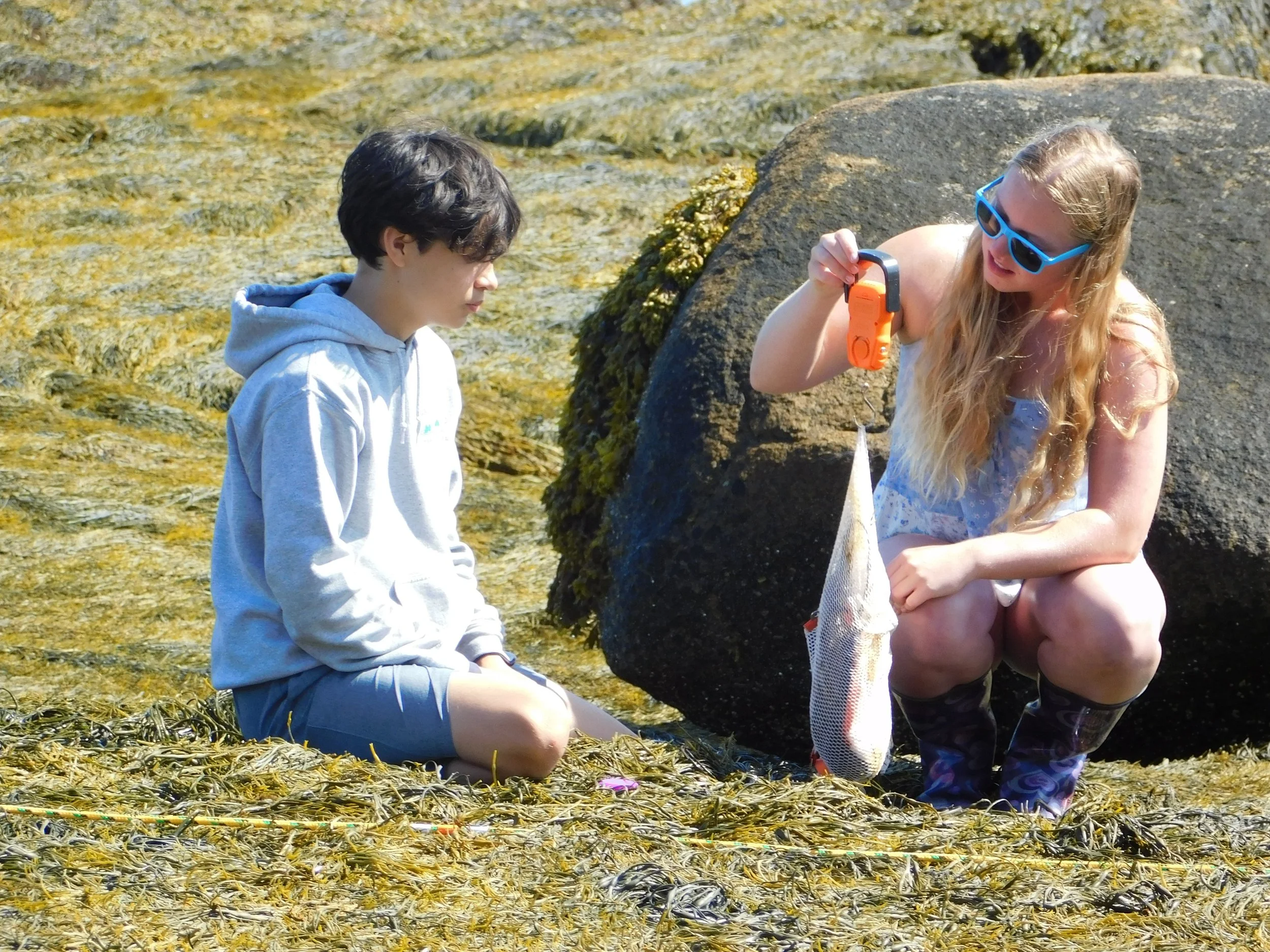
SUPPORTING EDUCATORS
Free and Low-Cost Field Trips
Click the (+) plus sign to read about and view the website for each resource.
-
Located in Wells, staff- guided and self- guided field trips available. Fees range depending on the number of participants, scholarships available. Explorer backpacks available to rent.
-
Located in Gray. View rehabilitated Maine wildlife including bear, deer, moose, birds, amphibians and reptiles. Educational exhibits and presentations are included with admission. Cost is $7.50-$10.00 per person, contact the park if you are planning to visit with a group: (207) 822-6460.
-
Locations in Holden, Scarborough Marsh and Falmouth. Programs range from 60-120 minutes and cover Maine wildlife and habitat as well as other topics. Early childhood- high school students are welcome. Prices range from $55-$120/HR and also depends on the number of students. Inquiry form is here.
-
LabVenture is for 5th-6th grade students and takes place in Portland. Participation is free and includes transportation. Topics include hands-on scientific inquiry inside the lab about Gulf of Maine Ecosystems.
-
Located in Cape Neddick, 2 hour visits for up to 75 students include viewing animals, the nature center and trails as well as staff- led activities.
-
Located in Boothbay, 60-120 minute guided visits include topics such as pollinators, botany, birds, apple cider pressing and more. Therapeutic visits and career exploration are also available. Admission to the Gardens is $95 for up to 25 students and guided visits are $25-$50. Reservations and pricing policy here. Grants available for admission and bus subsidies for Title 1 schools.
-
Located in Lincolnville, day and overnight field trips cover a wide range of ecological topics (forest, watershed, marine) as well as community building for grades K-9. Our programs are designed to be part of the classroom curriculum. Every program is correlated to the State of Maine Learning Results and the Next Generation Science Standards and is further tailored to the curricular goals of each participating class. For more information on pricing, scheduling, and availability call 207.789.5868 or extension.tanglewood4h@maine.edu.
-
Pre-K- 12th grade, up to 30 students per group at Katahdin Woods and Waters National Monument or other locations in the region. Programs are free with transportation reimbursement and gear lending. Topics include wildlife, water, geology, Wabanaki studies, outdoor recreation and more. More information contact Kala Rush, Education Director at kala@friendsofkww.org.
-
Science, Nature and Planetarium programming for all ages located in Easton. Indoor and outdoor visits available, as well as school based visits or guided local hikes. For more information contact Elaine Hendrickson: elaine.hendrickson@gmail.com.
-
Based in Milbridge, MOS offers programming at schools and field trips to other local nature areas and trails. For more information (all programs are custom designed) and pricing, fill out this form.
Click the (+) plus sign to read about and view the website for each free resource.
-
View lesson plans here. Seven different modules that include multiple lessons and resources created by Brianne Lolar, Panawahpskek Citizen & Wabanaki Studies Team Leader at the Maine Department of Education, working with many Wabanaki advisors.
Grade Level: Pre-K - Grade 12
-
OpenSciEd exists to change the status quo and remove the predictability about who succeeds and shows affection for the STEM fields. These lessons are intended for classroom educators.
Grade Level: 6-8; NGSS Aligned
Topics covered: Light and matter, thermal energy, weather, climate, chemical reactions, metabolic reactions, matter cycling
Learn more and view curricula here. -
View resources here. Winter Kids’ Learning Outside Guide makes it easy for educators to integrate fun, outdoor activities into their winter lessons. Early Childhood, Common Core Standards Aligned. Includes an online training module.
Topics Include: Art, Language Arts, Math, Science, Social Studies, Physical Education
Grade Level: K - 8
-
View resources here. Teach ME About Food & Farms offers free lessons about Maine agriculture. Common Core Standards Aligned, Maine Learning Results Aligned
Topics Include: Maine agriculture, aquaculture, school gardens, nutrition
Grade Level: Pre-K - Grade 12
-
View Learning Resource Hub here. GMRI designs science learning resources to support educators to engage their students in authentic and current science about climate and ecosystem change. NGSS and Common Core Standards Aligned.
Topics Include: Climate Change, Data, Ecosystems, Fisheries, Gulf of Maine, Invasive Species, Modeling, Outside, Scientific Investigation, Scientific Writing, Species Identification, Watershed
Grade Level: K - 12
-
Audience: Educators in outdoor science education settings
Grade level: Primarily Grade 3-8 but adaptable for older and younger students
Click the links to view lessons:
Outdoor Science Experiences
Classroom and Schoolyard Experiences
Equity, Inclusion, and Cultural Relevance -
View resources here. Project Wild is a series of activities designed for all educators in PreK-12 settings. Project Wild activities provide wildlife-based conservation and environmental education meant to foster responsibility towards wildlife and natural resources. Aligned with NGSS, Head Start Early Learning Outcomes Framework, and CCSS standards.
Grade Level: Pre-K - Grade 12
Topics Include: Terrestrial Wildlife, Habitats, Aquatic, Ecological Concepts, Wetland Wildlife, Birds, Student Connection to Wildlife and the World -
View resources here. Project Learning Tree provides multi-disciplinary, hands-on lessons for all grade levels to help develop awareness, knowledge, and appreciation of the environment, and to build students’ skills to make informed decisions for sustaining the environment. Common Core, NGSS, C3, and Head Start Aligned.
Grace Levels: Early Childhood, K-12, Family activities
Topics Include: Multidisciplinary activities to connect children to nature; Sensory exploration to understand objects, spaces, people and interactions; K-2 learners’ relationship with nature and trees









